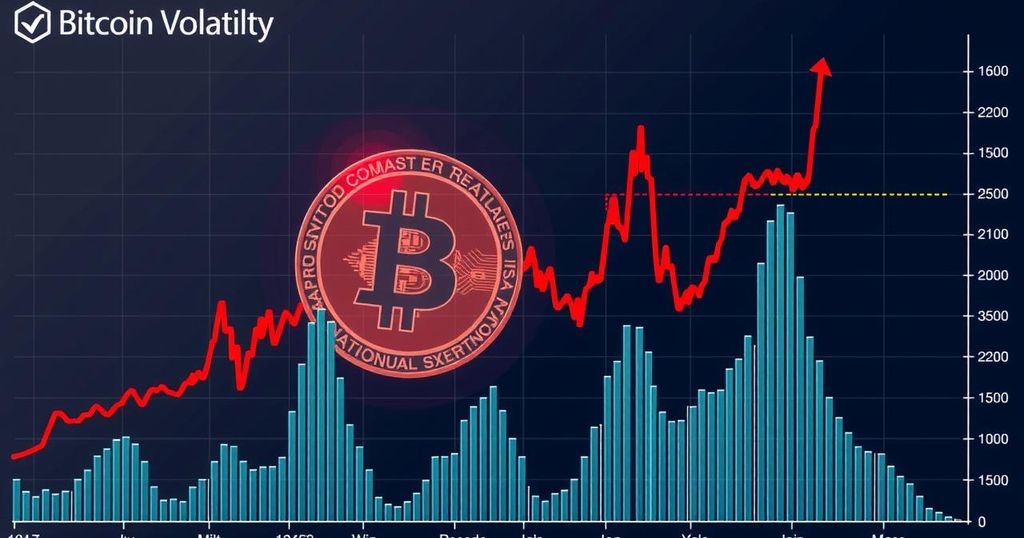Bitcoin ETF Inflows Plummet as Price Declines Amid Economic Turbulence
On January 7, Bitcoin ETF inflows fell sharply to $52.9 million, a 94% drop from $987 million, following a 5.7% decrease in Bitcoin’s price. Influences included rising U.S. bond yields and economic uncertainty before key policy and labor reports. BlackRock’s ETF recorded the only positive inflow; overall trading volume rose to $4.62 billion.
On January 7, inflows into spot Bitcoin exchange-traded funds (ETFs) experienced a significant decline as the price of Bitcoin fell over 5%. This downturn was largely attributed to increased speculation about a hawkish monetary policy from the Federal Reserve. Despite an initial surge in Bitcoin’s value to over $102,000, optimism quickly dissipated when Bitcoin’s price succumbed to external economic pressures, specifically rising U.S. bond yields, which dampened investor sentiment as they awaited forthcoming key economic indicators.
Following an impressive rally, the cryptocurrency suffered a setback with a 5.7% decline within a single day. The pressure intensified due to a report from the U.S. Labor Department, which indicated that job vacancies hit a six-month high as demand in the services sector increased. This release preceded the essential nonfarm payroll report, expected to have significant implications for Fed policy considering the labor market’s strength could reinforce expectations of continued inflation and more stringent interest rate measures.
As a consequence of the declining Bitcoin price, total inflows to the 12 tracked Bitcoin ETFs plummeted to merely $52.9 million, indicating a staggering 94% decrease compared to the previous day’s inflows of $987 million. Against this backdrop, BlackRock’s spot Bitcoin ETF emerged as the only product to witness positive inflows, attracting $596.11 million. In contrast, the ARK and 21Shares bitcoin ETF registered the largest outflows of $212.55 million. Moreover, Grayscale’s GBTC and BTC ETFs experienced notable outflows of $125.45 million and $113.85 million, respectively. Brokerages like Fidelity and Franklin Templeton accounted for additional significant outflows.
Despite this tumultuous period for Bitcoin ETFs, trading volume across these products surged to $4.62 billion on January 7, an increase from $3.96 billion a day prior. At the time of reporting, Bitcoin traded at approximately $96,145 per coin, reflecting the broader challenges facing the cryptocurrency amid shifting economic indicators.
The dynamics of Bitcoin and its associated ETFs are influenced significantly by macroeconomic factors, particularly monetary policy strategies implemented by central banks such as the Federal Reserve. Changes in bond yields often correlate with expectations about interest rates, which investors closely monitor. Hence, fluctuations in Bitcoin’s price can have direct implications for investor behavior concerning the associated ETFs. The observed decline in inflows highlights how sensitive the cryptocurrency market is to broader economic signals and policy outlooks.
In summary, the substantial decline in Bitcoin ETF inflows on January 7 can be primarily attributed to rising economic pressures and investor caution stemming from anticipated Federal Reserve monetary policy changes. Despite initial bullish activity, the prevailing economic indicators underscore the cautious outlook among investors, who are closely monitoring upcoming labor market reports that could influence Federal Reserve policy decisions. The significant outflows from various Bitcoin ETFs further illustrate the challenges the cryptocurrency market currently faces amid these economic dynamics.
Original Source: crypto.news








Post Comment